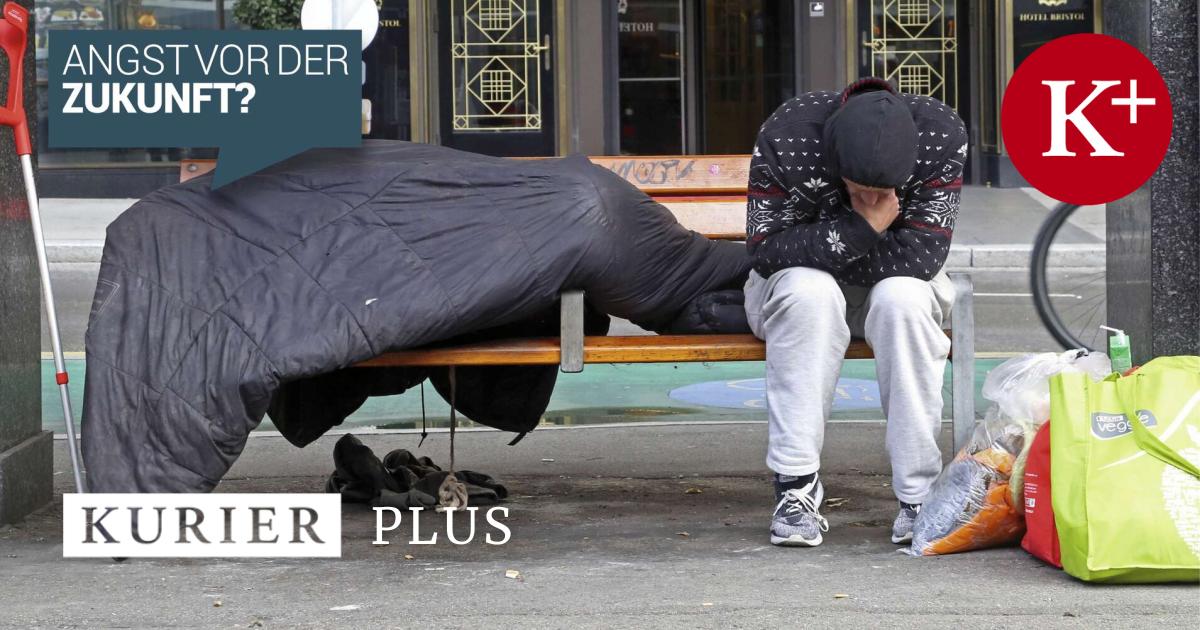That’s what they come with social consequences of such a decline, which are almost even more tragic: when prosperity dwindles, people look for scapegoats. The easiest victims are minorities and weaker sections of the population. This leads to a community drifting apart.
Is this feeling of being left behind also “to blame” for the rise of right-wing populist, xenophobic, nationalist forces?
It provides lift for both extremes, on the left and right edges. But neither one nor the other have answers to the big problems. But the dissatisfaction is not only expressed in electoral decisions. The Economist Anne Case and the Nobel Prize winner in economics Angus Deaton argue that the increasing number of Deaths in the USA due to suicide, drug overdose and alcoholism and the resulting falling life expectancy in recent years economic crisis of the countries. Left-behind parts of Britain are also seeing falling life expectancy, rising rates of suicide and drug addiction. And I also argue that the xenophobic riots that rocked Britain over the summer were also due to declining prosperity.
Is this development due to a “natural” cycle and the transformation of certain industries? Do we have to accept that there are losers and winners?
Changes are inevitable, but of course you cannot maintain a status quo forever. But it is certainly possible to design societies in such a way that regions are not permanently left behind and this does not happen Drifting apart comes from societies where communities are prosperous and more socially equal. Denmark for example, there is a high level of equality in terms of income, opportunities for advancement and the development of parts of the country.
Why is that?
Denmark achieved this primarily through public investment in the welfare state, financed through taxes. The Danes have a comparative one high income tax rate of 55 percent and one low national debt ratio 27 percent.
And, nobody likes taxesespecially not the wealthy population. But in Denmark she is also interested in one strong welfare state. Social mobility, i.e. the chance of being born into the bottom half of the population and rising to the top half, is high. Conversely, financial decline is also more likely. So the wealthy Danes have no certainty that their children and grandchildren will also be rich. This is also why there is great acceptance of the high tax rate.
The Danes do something else different: they keep it Sense of community high. During the corona pandemic, they appealed to this when it came to vaccinating the population. This led to the Vaccination rate was particularly high. This made Denmark one of the countries with the least economic damage from the pandemic and the lowest excess mortality. However, in countries where the individual need for protection was appealed to, for example in Germany, the willingness to be vaccinated was known to be less high.
When it comes to global inequality, international organizations such as the World Bank and the International Monetary Fund (IMF) are often criticized. To what extent are they complicit in the global gap between rich and poor?
Even the global institutions that are often criticized today, such as IWF or the World Bankwere once founded in the spirit of cooperation. However, for a long time they have taken a wrong approach: money in exchange for reforms. If you think about it, this is really a stupid approach. Because if the reforms are in the interests of a country, then a country will carry them out without “payment”. If not, the money was taken anyway and a way around the reform was found.
What do you think needs to change, eformer head of the research department at the World Bankchange?
The days of telling poorer countries what to do are long gone. Today we can no longer attach conditions to cash injections. The governments of the countries must be allowed to decide for themselves what is good for their country; they know that better than this Washington from far away. This also applies at the national level: one is needed there too decentralization of power to revitalize regions. This is much more of a problem in France or the UK than in Germany or Austria.
They advocate that African countries be allowed to reduce their fossil fuels on their own initiative – while richer countries in the Global North are currently trying to get away from it. Isn’t that counterproductive?
To adhere to the Climate change We agree that some of the carbon-based energy must remain in the ground. In economics we speak of “stranded assets”, i.e. assets that become worthless and are forgone. Here, too, it is about global inequality: In the fight against climate change, we have to think about who should forego the wealth of fossil raw material processing – the richest or the poorest people in the world? It’s only fair if it affects the rich; anything else would be moral imperialism.
